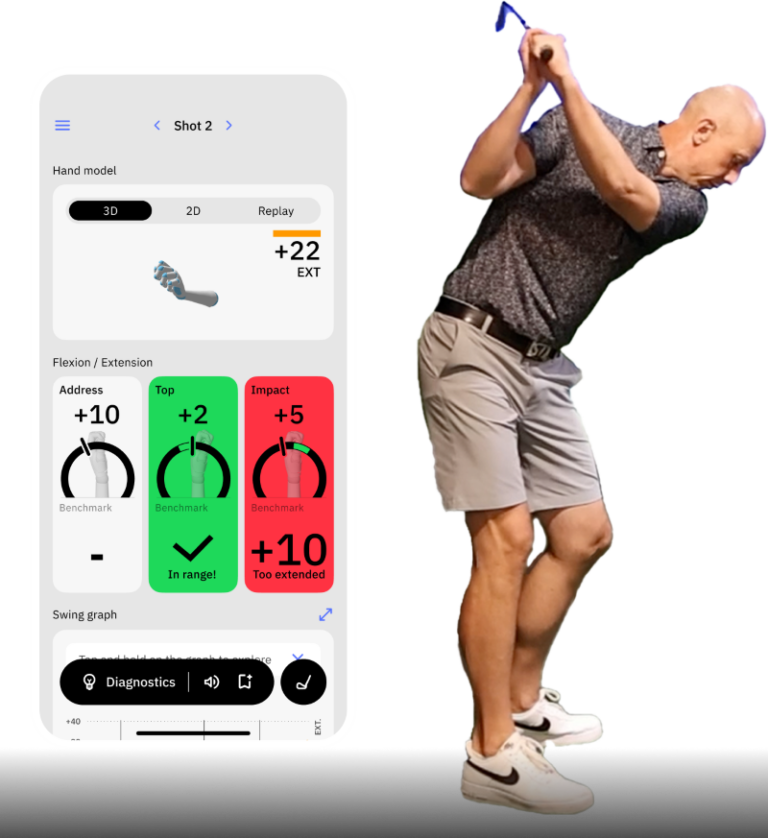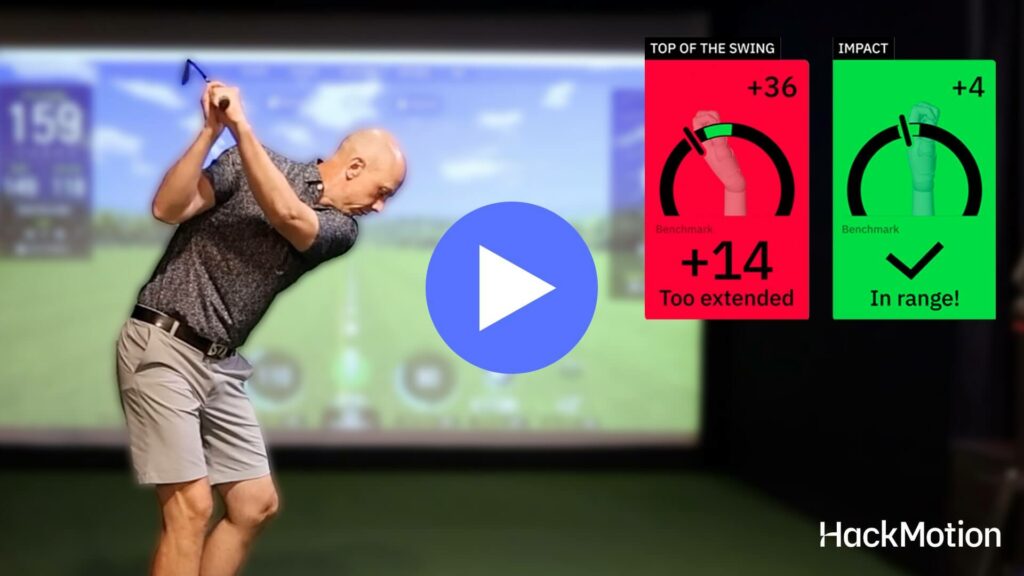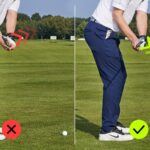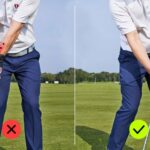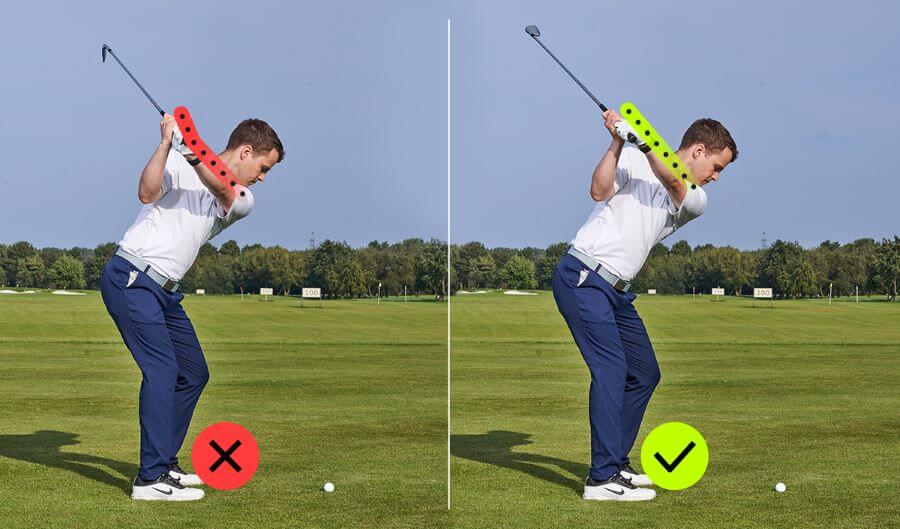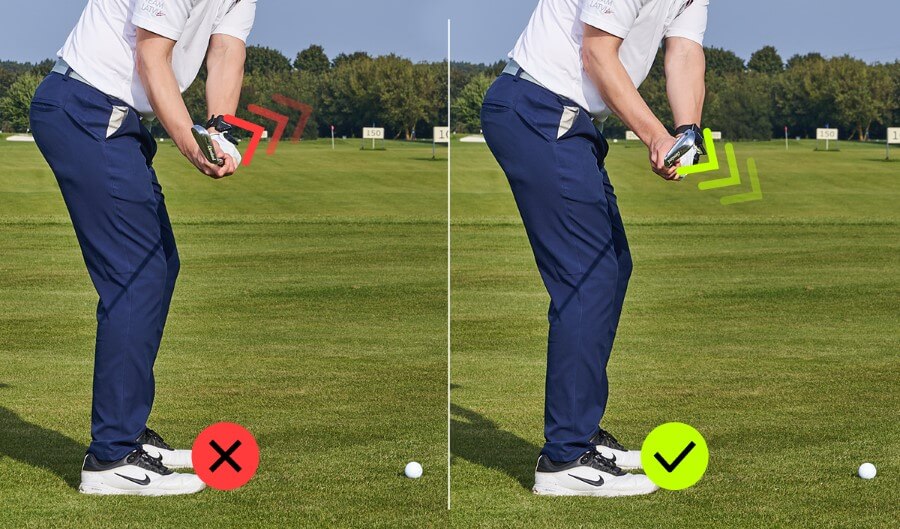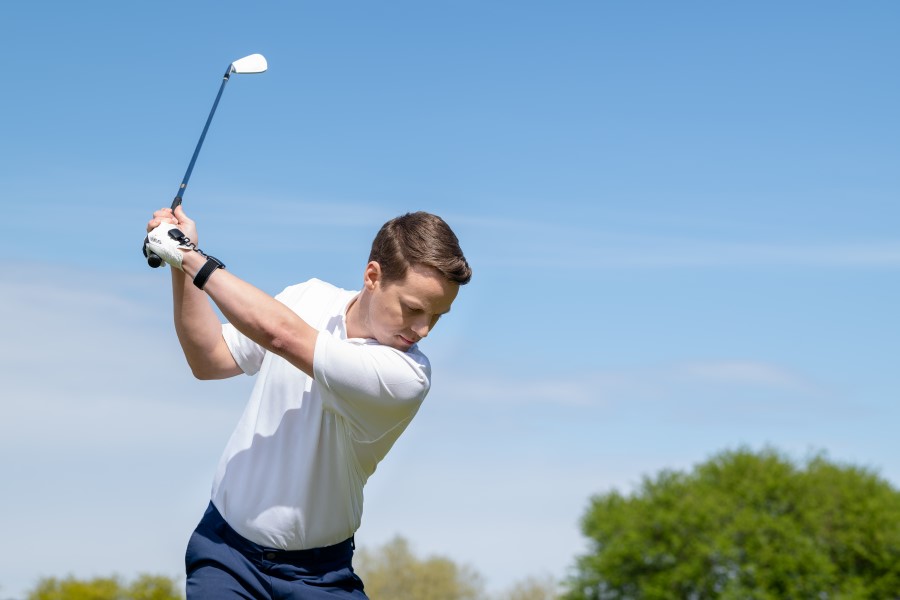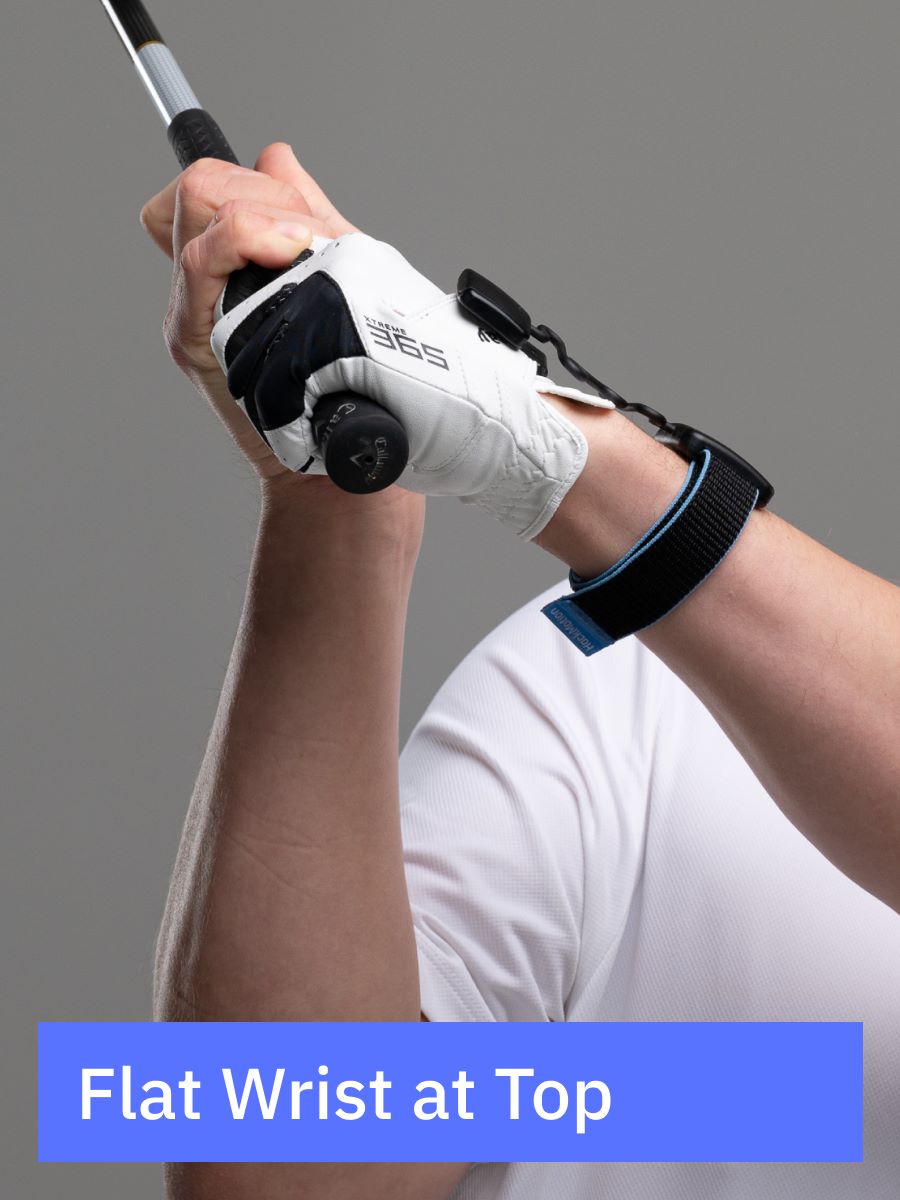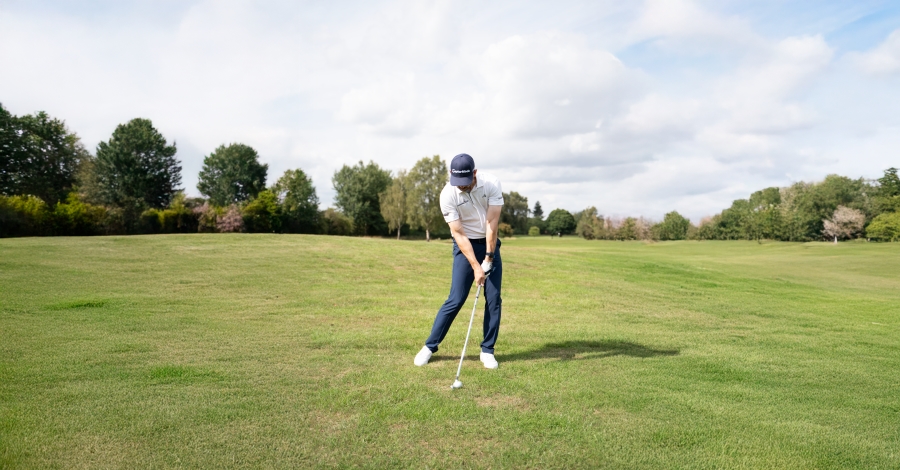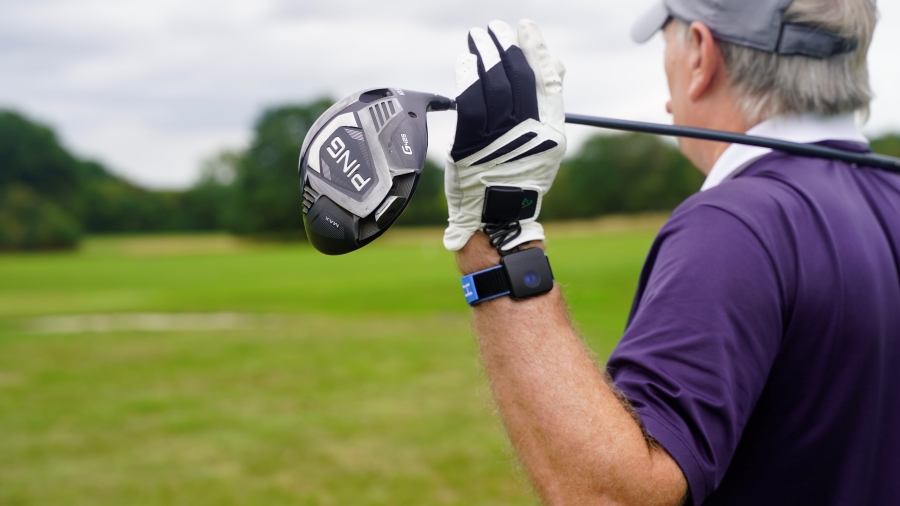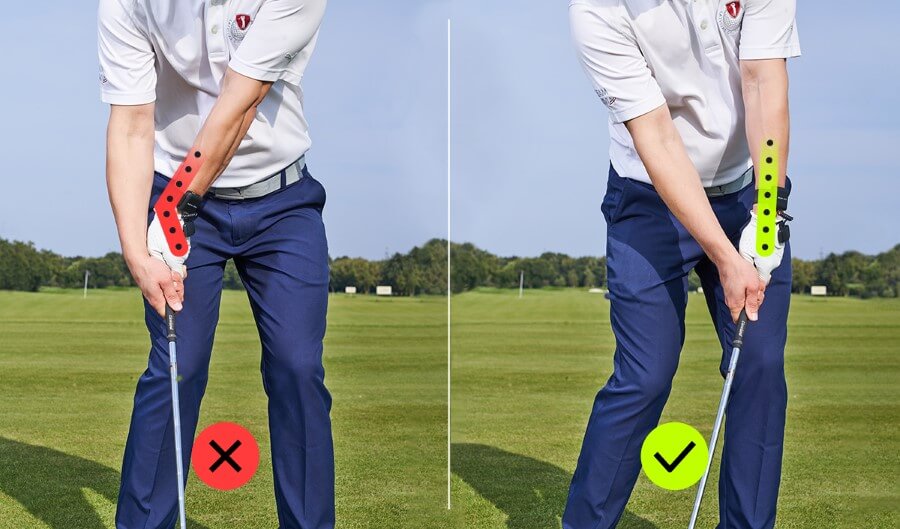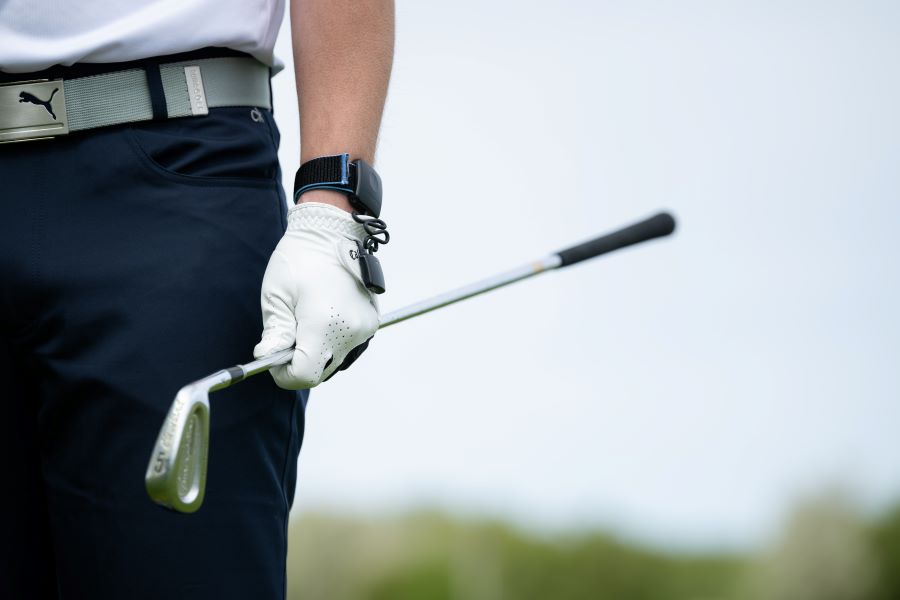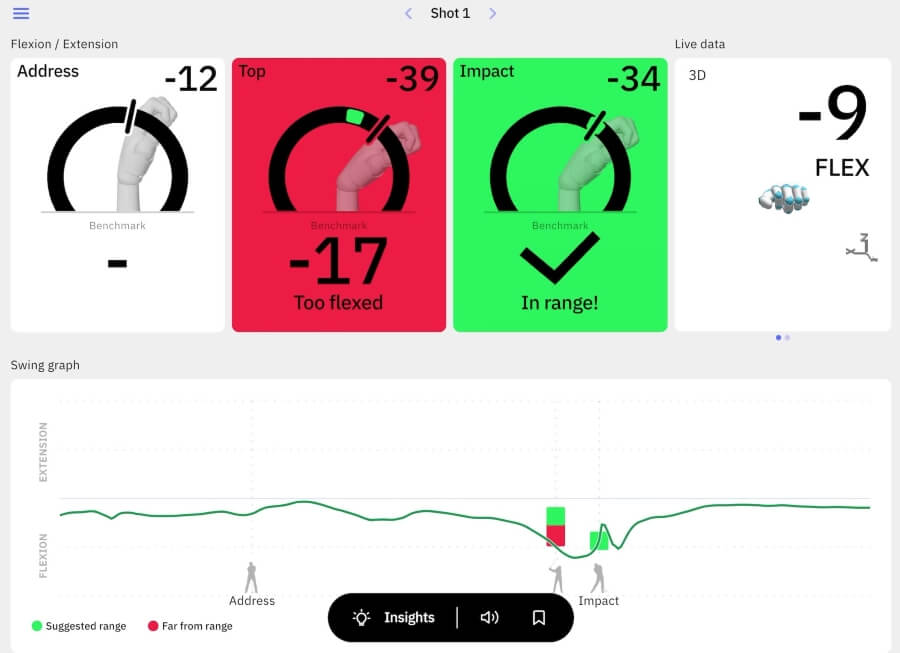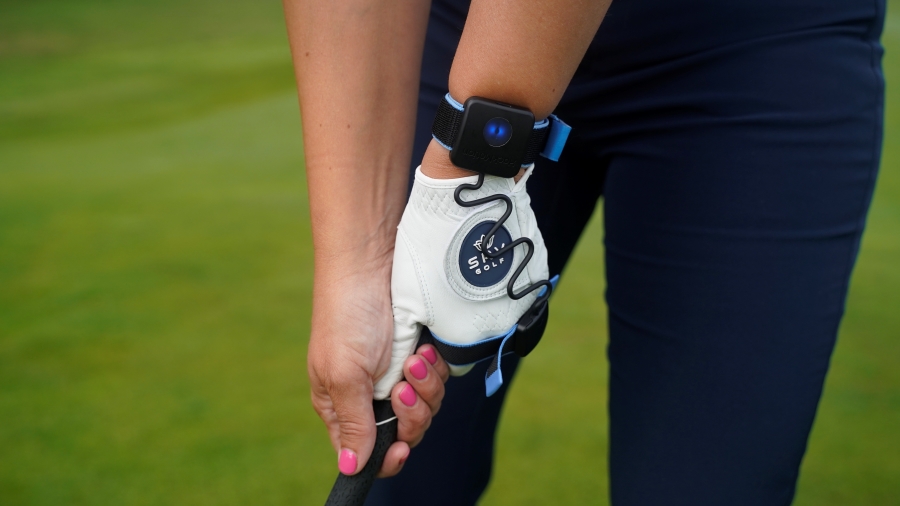Golf Grip Mistakes That Stop You From Cocking Your Wrists Correctly
The grip is your only connection to the golf club and if it’s wrong, it can block one of the most important moves in the swing: wrist cock, also called radial deviation.
Without this hinge, your backswing loses structure, your downswing loses speed, and your shots come up short.
The good news? A proper grip makes wrist cock natural, repeatable, and powerful. Let’s break down what goes wrong, how to hold the club correctly, and a few drills you can use to retrain your hinge.
Key Takeaways
Here are a few of the most important things to know about wrist hinge and the way that a poor grip can keep you from doing it correctly.
- Gripping the club too much in the palm restricts your wrist hinge and costs you power.
- A finger-oriented grip frees your wrists to hinge naturally during the backswing.
- Radial deviation (wrist cock) adds power, while ulnar deviation (uncocking) releases it into the ball.
- HackMotion helps you measure your wrist hinge at takeaway, top, and impact.
- Drills like the Grip-in-Fingers Drill, Faldo Drill, and HackMotion Radial Deviation Drill help you ingrain the correct motion.
Contents
Why Wrist Cock (Radial Deviation) Matters
Radial deviation is simply the act of cocking your wrists, moving your thumbs closer to your forearms.
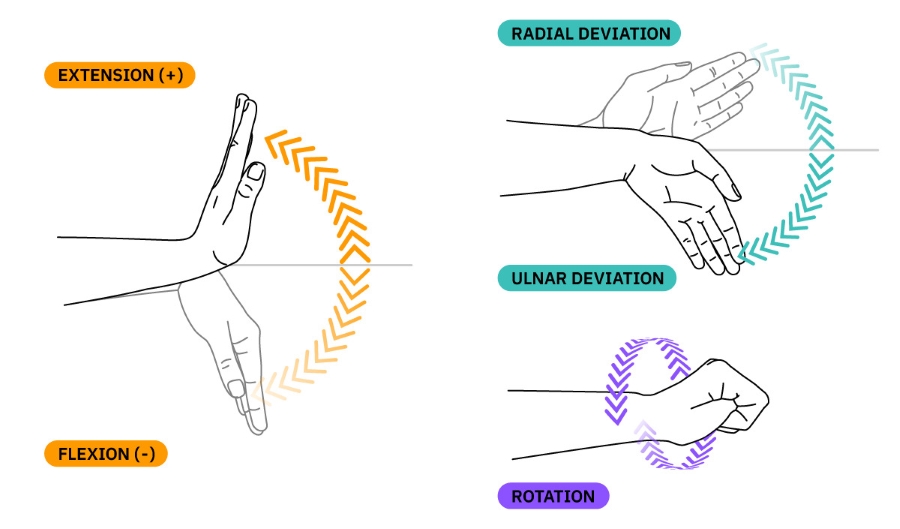
Every golfer does it to some degree, but the amount and timing separate strong ball strikers from players who struggle with distance.
When you add wrist cock correctly in the backswing, you create leverage that stores energy. In the downswing, that energy is released as the wrists uncock (ulnar deviation), delivering the club with speed and compression.
HackMotion data shows Tour players typically add 15–20° of radial deviation at the top before releasing it back to nearly their starting angle by impact.
Amateurs often can’t reach those numbers, not because they lack flexibility, but because their grip position locks up the wrists before the swing even starts.
The Grip Mistake That Blocks Wrist Cock
The most common error is holding the club too far in the palm. When the grip runs across the palm instead of through the fingers, it stiffens the wrists and prevents natural hinging.
Players often try to “manufacture” the wrist cock by bending their lead arm or lifting the club, but these compensations only reduce consistency and power.
This mistake doesn’t just cost distance; it also makes it harder to square the clubface, leading to slices, pulls, and mis-hits.
If you’ve ever felt like your swing is restricted at the top, your grip may be the hidden cause.
How to Grip the Club Properly
A proper grip allows your wrists to move freely while still controlling the clubface. Instead of locking the handle deep into the palm, start by positioning the grip more in the base of the fingers.
Lead Hand Placement – Lay the club diagonally across the base of your lead fingers, from just above the pinky joint to the pad under your index finger. When you wrap your hand, the heel pad should sit firmly on top of the grip.

Trail Hand Placement – Position the club across the fingers of your trail hand as well, then fold the lifeline over your lead thumb. This connection ensures both hands work together without tension.
Checkpoints – With the club held out in front of you, you should be able to hinge your wrists easily up and down. If it feels stiff or locked, the grip is too palmed.
Using HackMotion, you can immediately test the difference. A palm-heavy grip will show very little hinge at takeaway, while a finger-oriented grip produces a cleaner increase in radial deviation.
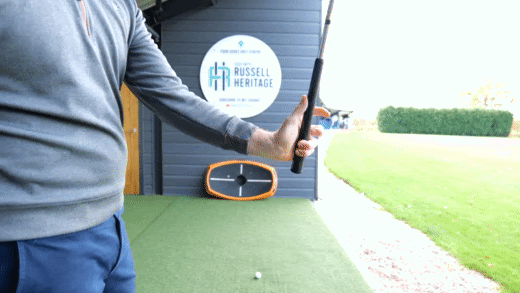
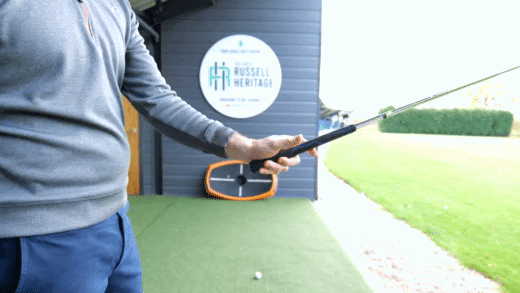
Drills to Fix Grip Mistakes and Train Wrist Cock
Here are three drills designed to help you retrain your grip and build a repeatable wrist hinge. Use HackMotion during each drill to measure hinge angles and confirm you’re staying in your “green zone.”
Grip-in-Fingers Drill
This drill reinforces the feel of a finger-oriented grip and how it frees the wrists.
Grip-in-Fingers Drill – Step by Step
- Take your setup with the club firmly in the fingers of your lead hand.
- Begin your takeaway slowly, stopping at shaft parallel (P2). Notice how much easier it is to hinge compared to a palm grip.
- Pause and check your HackMotion numbers you should see the start of radial deviation without overextension.
- Repeat for 10–15 slow swings, then hit short shots to transfer the feel.
Faldo Drill
This classic drill, popularized by Nick Faldo, teaches a compact top-of-swing position with the correct amount of hinge and rotation.
HackMotion Faldo Drill
Reach a solid Top position with just the right amount of wrist hinge.
HackMotion Faldo Drill – Step by Step:
- Preset Wrist Hinge: At address, hinge the club until it’s parallel to the ground without moving your hands. This should create about 90° of hinge. HackMotion can confirm if your wrist angles are in the right range.
- Turn the Shoulders: From this preset, rotate your shoulders to finish the backswing while keeping the wrists and arms relaxed.
- Avoid Overswinging: Stop at the preset top position and resist the urge to let the wrists or arms collapse further.
- Gradual Reps: Begin slowly, then add speed as you get comfortable. Use HackMotion feedback to keep your hinge consistent.
HackMotion Tip: Monitor wrist flexion/extension at the top. If you’re overhinging or cupping, the sensor will show it. Repeat swings until you can hold structure.
HackMotion Radial Deviation Drill
This drill helps you measure and control the amount of wrist cock throughout the swing.
HackMotion Faldo Drill – Step by Step:
- With HackMotion on, make slow backswings while pausing at key checkpoints shaft parallel (P2) and the top (P4).
- Compare your wrist angle numbers. Tour patterns add ~15–20° of radial deviation by the top.
- Repeat until you can consistently reach your ideal range without forcing the motion.
- Transition into hitting short irons while checking the data after each swing.
Final Thoughts
Your grip controls your wrists, and your wrists control the clubface and power.
By avoiding the palm-heavy grip mistake and learning to hold the club properly in the fingers, you set yourself up for a natural wrist cock that adds both distance and consistency.
HackMotion acts like a coach on your wrist, giving you real-time numbers so you know whether you’re cocking your wrists correctly.
Combine proper grip fundamentals with drills like the Grip-in-Fingers Drill and Faldo Drill, and you’ll be on your way to a stronger, more repeatable swing.
